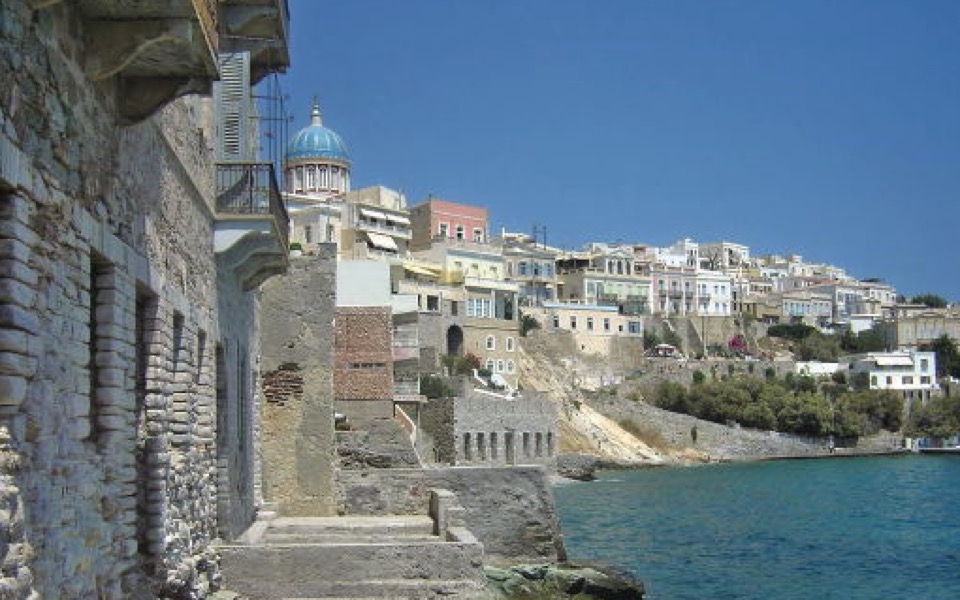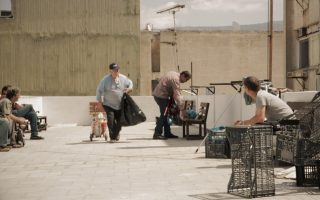High taxes, red tape put off foreign filmmakers from shooting in Greece

Reports late in November that American cinematographer and director Steven Bernstein was interested in establishing a film studio on the Cycladic island of Syros caused a stir on social media. However, few people seemed aware of the conditions set by the Cannes Golden Lion winner.
Speaking to Kathimerini, Giorgos Leontaritis, deputy regional governor of the Cyclades, says that for the investment to go ahead, Bernstein has asked that Greek legislation on this issue be harmonized with EU standards.
Production firms are usually after two types of incentives before they decide to start shooting in a particular country: tax rebates or cash rebates after the wrap, which account for about 30 percent of production costs. There is strong competition between countries wanting to attract productions over this percentage.
“Bernstein was in Ermoupoli this summer and he was struck by the beauty of [Syros], which he described as a natural studio,” Leontaritis says, adding that the director was shown around the island’s capital by a local businesswoman. “We agreed to move ahead after we had received a detailed study about the investment. A few weeks later, he sent us the study, which was, of course, approved by the regional authorities,” he says.
According to Christina Pigaki, a copyright lawyer, Greece is not a competitive destination for film producers as it offers none of the aforementioned incentives. In fact, it requires additional outlays that send production costs through the roof. Greece’s Central Archaeological Council (KAS), for example, charges 100 euros per second for shooting in places of archaeological or historical interest. “This being Greece of course, most public spaces have some archaeological and historical interest,” she says. Pigaki, a legal representative of the company that produced “Captain Corelli’s Mandolin” on the island of Cephalonia in 2001, recalls the many obstacles that the production team had to overcome while shooting. Those obstacles almost killed the project.
According to a study by the Association of Greek Producers for Cinema, audiovisual projects comprise one of the 10 fastest-growing sectors of the global economy. Greece now makes between 2-3 million euros per year from the shooting of foreign films. However, more political will and a few legislative reforms could turn the country into a more accessible, less bureaucratic and more friendly destination for film projects. It is estimated that revenue could rise up to an annual 30 million euros.
“There is no more direct investment than cinema,” says Panayiotis Papachatzis, the chairman of the association, adding that Greece has all the necessary requirements (human resources, know-how, technical infrastructure, natural beauty and culture) to become an internationally competitive destination for audiovisual projects. “Unfortunately, Greece is not considered a filmmaking-friendly country. It is the only country in the world that has not introduced incentives for attracting foreign productions,” Papachatzis says.
In Greece, responsibility for offering the above incentives and streamlining the legal framework for film productions is split between four ministries (Finance, Culture, Tourism and Development). Coordination was in the hands of a working group that was set up early 2015, bringing together representatives from the four ministries under the supervision of then deputy minister Terence Quick. The team was tasked with preparing a bill that was expected to be tabled by late November, but the whole thing was pushed back due to the government reshuffle.
“The bill is ready, but there are still a few pending issues regarding the issuing of permits. These should be solved soon,” says a member of the team, speaking on condition anonymity, adding that the bill was slated to be tabled within January.
“We want to have it passed as soon as possible,” the source says. The bill, according to the same source, not only foresees economic incentives, but also the simplification of special permits from the services of the Culture Ministry. It also foresees the establishment of regional offices that will undertake the implementation of productions.





